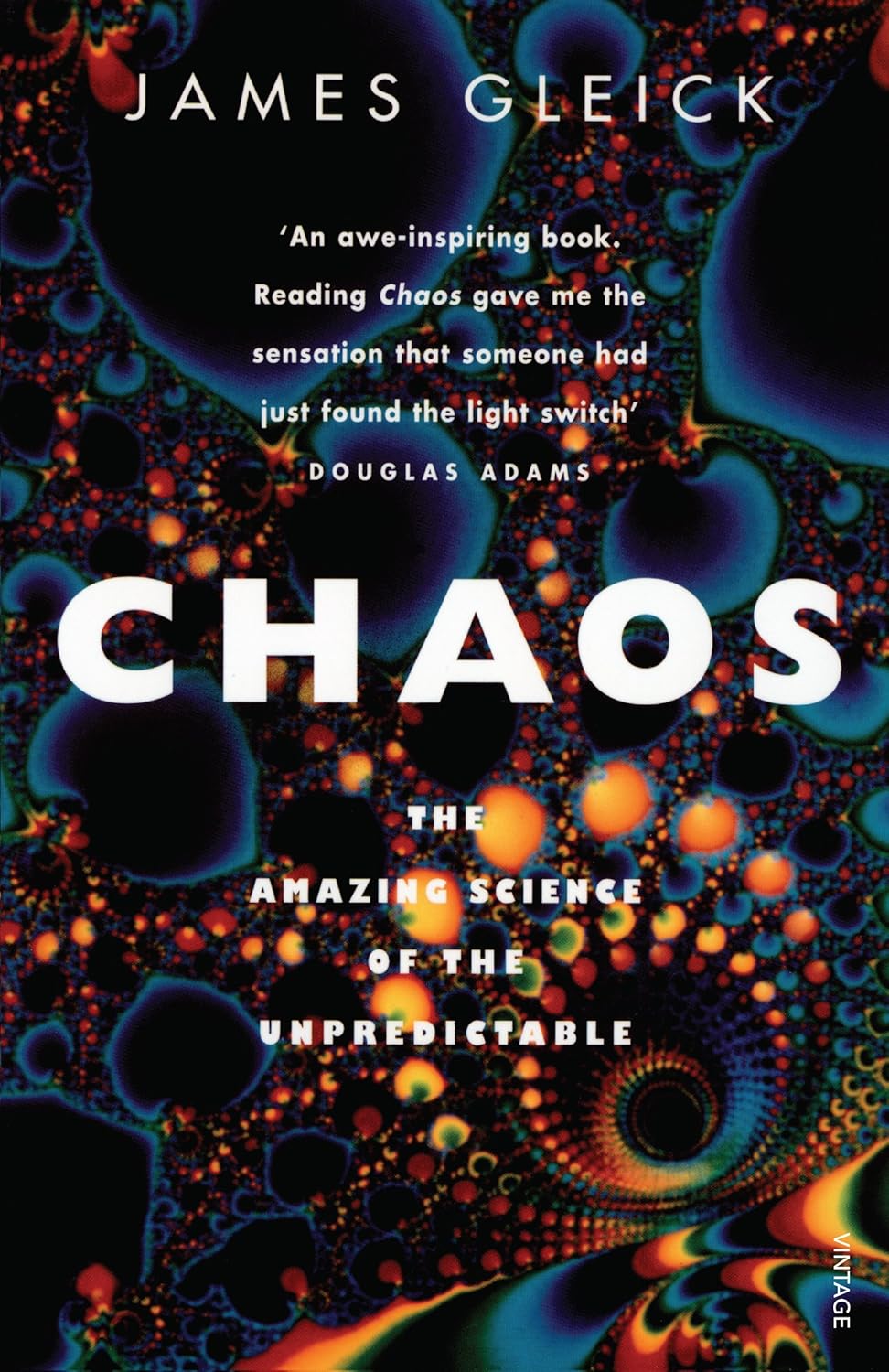Chaos
- Brand: Unbranded

Description
Gleick's way of telling the stories makes the reader share in the wonder and incredulity of each pioneer as he stumbled upon this hitherto unguessed truth of nature. His first book, Chaos: Making a New Science, an international best-seller, chronicled the development of chaos theory and made the Butterfly Effect a household phrase. Those with a background in physics, maths, astronomy or anything along those lines will probably feel they can appreciate some fairly significant concepts in the book. In Chaos, Gleick makes the story of chaos theory not only fascinating but also accessible to beginners, and opens our eyes to a surprising new view of the universe. But he exaggerates the importance of these topics, presenting them as a holistic revolution in physics, overthrowing reductionism, which just isn't the case.
The book could have benefited from a lecture style presentation, with clear chapter introductions and summaries, so that I could see how it all fit together, not to mention what year he was currently talking about. It is wide ranging and covers all the basic topics without muddying the waters with too much detail. I also didn't care for the tone of the brief profiles of the various physicists and mathematicians - it felt like name-dropping to me. Players show up in one chapter, abruptly disappear in the next, and sometimes reappear years (chapters) later.The paradox is that although nonlinearity is almost the standard form in which Nature manifests itself to us, the entire tradition of Science, is based on transforming nonlinear systems to linear ones, creating an arsenal of mathematical tricks to do that, even worse, these complexities are viewed as ‘noises’, ‘irregularities’, something which ideally should not be there in the first place. Much of what the first generation of chaos scientists did is incredibly easy to demonstrate with a laptop computer today--but most of these chaos pioneers were working with handheld calculators, mainframe computers with dump terminals and limited and unreliable access for something so peripheral to the institution's perceived mission, computers whose only output device was a plotter.
Chaos: Making a New Science, was a finalist for both the National Book Award and the Pulitzer Prize in 1987, and was shortlisted for the Science Book Prize in 1989. James Gleick was born in New York and began his career in journalism, working as an editor and reporter for the New York Times. The kind of book that just blows your mind with how cool it all is, and why doesn't anyone teach science like THIS. This book gives a wonderful explanation of the Butterfly Effect - one of those ideas in science that everyone thinks they know and understands, but that generally people have upside down and back to front. Gleick's book was first published in 1987, so I imagine by now there have been many developments and modifications to the ideas and theories presented here.That being said, this felt like a good introduction to the early history of scientists' efforts to understand and explain nonlinear systems and the apparent chaotic behavior observed in natural and man-made systems. Gleick's essays charting the growth of the Internet included the "Fast Forward" column on technology in the New York Times Magazine from 1995 to 1999 and formed the basis of his book What Just Happened. The few things that kept being used as examples were the motion of water in a stream (fluid dynamics), or air tubulence. Featured Review: So You Have Been Asked to Give a Lecture Course on the Applications of Nonlinear Dynamics.
Newton was okay for some things but all these new equations describe just HOW little uncertainties can create huge chaotic messes. From Edward Lorenz’s discovery of the Butterfly Effect, to Mitchell Feigenbaum’s calculation of a universal constant, to Benoit Mandelbrot’s concept of fractals, which created a new geometry of nature, Gleick’s engaging narrative focuses on the key figures whose genius converged to chart an innovative direction for science.The last chapter was incomprehensible hippie mysticism, then the book just ended leaving me wondering what the whole point was. A work of popular science in the tradition of Stephen Hawking and Carl Sagan, this 20th-anniversary edition of James Gleick’s groundbreaking bestseller Chaos introduces a whole new readership to chaos theory, one of the most significant waves of scientific knowledge in our time. Because of this book, and the many delights that have followed, I am a lover of popular science writing. It portrays the efforts of dozens of scientists whose separate work contributed to the developing field.
- Fruugo ID: 258392218-563234582
- EAN: 764486781913
-
Sold by: Fruugo
